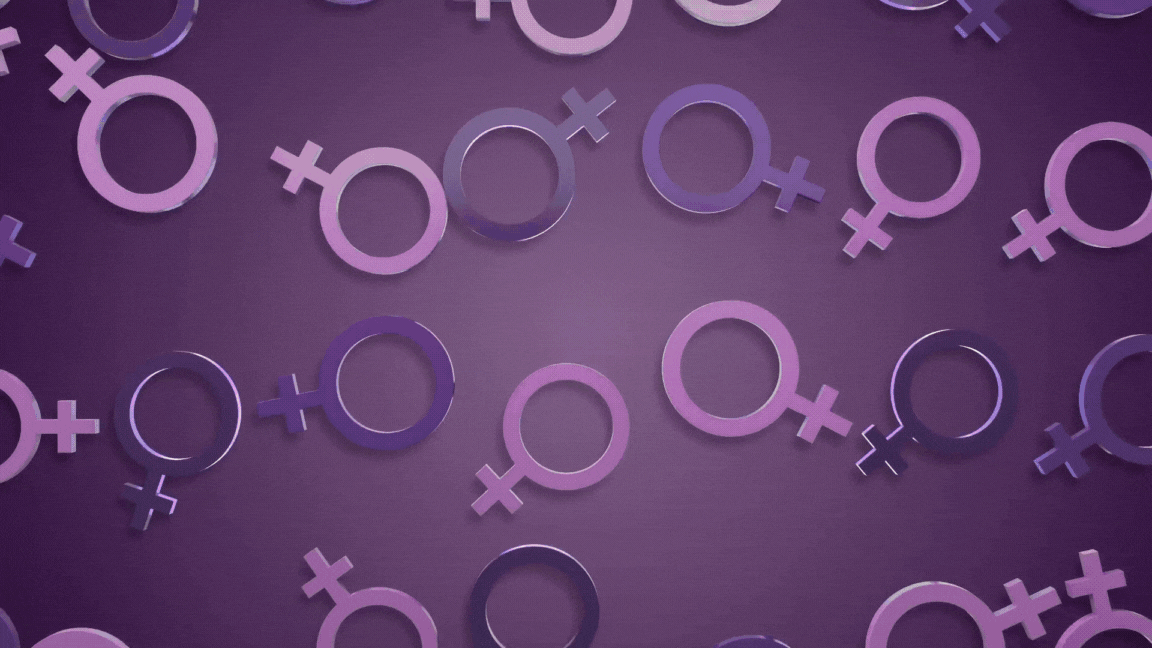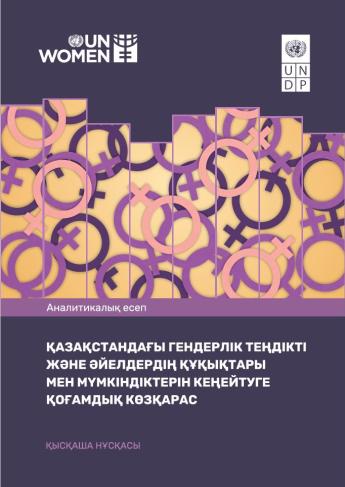Under 40 percent of Kazakhstan citizens know what ‘gender equality’ is: analytical report on women’s rights and opportunities in Kazakhstan
March 5, 2024

The United Nations Development Programme (UNDP) and UN Women in Kazakhstan, with the support of the Ministry of Culture and Information of the Republic of Kazakhstan, presented an analytical report, “Public perception of gender equality and women’s empowerment in Kazakhstan’. The report is based on data from a survey of 3,800 respondents from 17 regions of Kazakhstan and three cities of republican significance.

“We are convinced that sustainable development is impossible without gender equality. This challenge requires us not only to commit, but also to work collectively to overcome deep-rooted barriers to equality. Let us use the data and recommendations of this report as the basis for developing effective strategies and policies that will contribute to the achievement of gender equality in Kazakhstan”,said Sukhrob Khojimatov, UNDP Deputy Resident Representative in Kazakhstan.
The experts interviewed as part of the study identified the following pressing gender problems in Kazakhstan: the underrepresentation of women in the political sphere and in leadership positions, the gender pay gap, horizontal and vertical gender segregation in the labour market, imperfect legislation, domestic violence, and harassment. The presence of these problems is partly confirmed by the results of a mass survey and focus group discussions.

"Gender equality remains a crucial priority in the state policy towards building a fair society and fostering development. This is substantiated by the legislative anchoring and adoption of pivotal international agreements aimed at eradicating gender discrimination. Presently, we are committed to further enhancing women's participation in decision-making both in governmental bodies and the private sector. Comprehensive efforts are underway to broaden economic opportunities for women in rural areas and support women’s entrepreneurship. However, persistent gender stereotypes within Kazakhstani society continue to pose certain obstacles to women's professional advancement, restrict their involvement in political and economic spheres, and hinder their self-realization across various domains,"emphasized Yevgeniy Kochetov, Vice Minister of Culture and Information of the Republic of Kazakhstan.
However, the study’s authors note that many of the problems listed by experts are not acknowledged by respondents.
Some conclusions from the report are as follows:
- Only 33.5 percent to 39.4 percent of respondents, depending on the term used, reported knowing the meanings of concepts such as ‘gender’, ‘gender equality’, ‘expanding women's rights and opportunities’ and ‘feminism’.
- A high percentage of both men (83.1 percent) and women (70.6 percent) believe that women in Kazakhstan have sufficient rights and opportunities, despite an obvious lack of understanding of gender issues.
- 72.9 percent of men believe that women either have too many or enough rights and opportunities in politics, while among women, only 57.7 percent share this opinion.
- The majority of respondents (53.6 percent of women and 67.9 percent of men) support traditional gender roles and agree that a woman's main duty is to take care of the family.

“The report is a valuable resource of up-to-date information on perceptions of gender equality and women's empowerment in Kazakhstan, which can be used by national partners in developing and adopting effective strategies to promote gender equality and to counter gender stereotypes. This is the first time a survey of this nature has been conducted in Kazakhstan. I hope that the results of the report will serve as the basis for the further promotion of women’s rights and opportunities in our country”,said Dina Amrisheva, Head of UN Women Kazakhstan a.i.
The study offers a series of recommendations for changing the situation, including increasing society's awareness of gender equality, involving youth through educational programmes, strengthening legislative measures against gender-based violence and harassment, creating support infrastructure for the survivors of violence, and overall governmental support at all levels for further development and strengthening of gender equality in the country.
The full version of the report is available here.

 Locations
Locations







